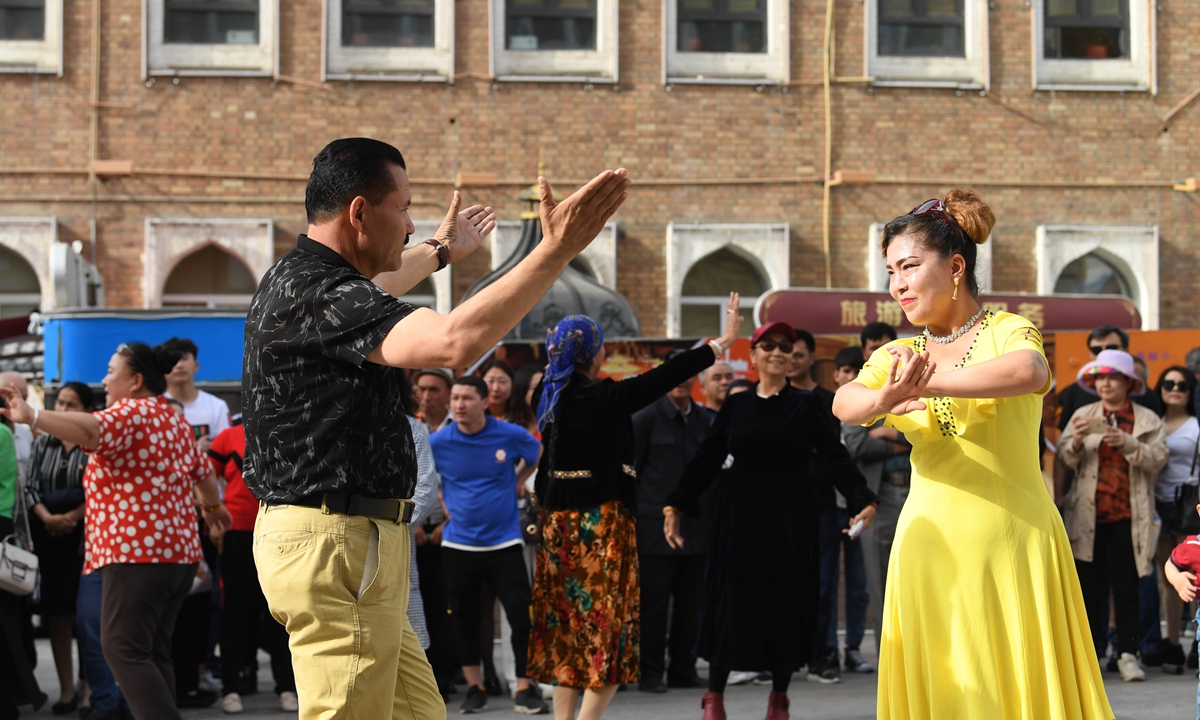China strongly opposes claim from US business advisory on Xinjiang supply chain
Source: Global Times Published: 2020/7/15 11:57:15

People dance outside the Xinjiang International Grand Bazaar in Urumqi, northwest China's Xinjiang Uygur Autonomous Region, May 22, 2019. (Photo: Xinhua)
China has strongly refuted and condemned a statement from the US' Xinjiang Supply Chain Business Advisory, saying the statement is a lie aimed at suppressing Chinese business under the name of human rights and that it will disrupt the global supply chain.
The Xinjiang Supply Chain Business Advisory's claim that there are forced labor and human rights abuses in businesses in Xinjiang is a "crude" lie and not worth refuting, said Hua Chunying, spokesperson of the Ministry of Foreign Affairs, on Tuesday.
The statement, published on July 1 by the US Department of State, Department of the Treasury, Department of Commerce and Department of Homeland Security, claimed there are entities in the Xinjiang Uygur Autonomous Region engaged in large-scale human rights abuses, including arbitrary mass detention, physical and psychological abuse and forced labor against China's ethnic minorities.
The advisory said businesses with potential supply chain exposure to such engagement in Xinjiang should be aware of the reputational, economic and legal risks that poses.
"The core issue in Xinjiang is not human rights as the US claims, but anti-terrorism and anti-secessionism," the spokesperson of the Ministry of Commerce (MOFCOM) said on Tuesday. "China is strongly opposed the US' interference in China's internal politics and to the US' attack on Chinese business under the name of human rights."
MOFCOM also strongly refuted the statement, noting that the US' actions will hinder normal business cooperation and disrupt the global supply chain. The ministry warned that China will take necessary measures to defend the rights of Chinese businesses.
Some of the US' false accusations related to Xinjiang are the biggest lies of the century, Hua said on Tuesday. Over the past four decades, the Uygur population in Xinjiang has more than doubled to 11.68 million, and the total number of mosques is now more than 10 times the number in the US, according to Hua.
"We sincerely hope that US politicians care about the severe race issue in their own country, and make efforts to protect the human rights of their own ethnic minorities," Hua said.
Global Times
Posted in: POLITICS